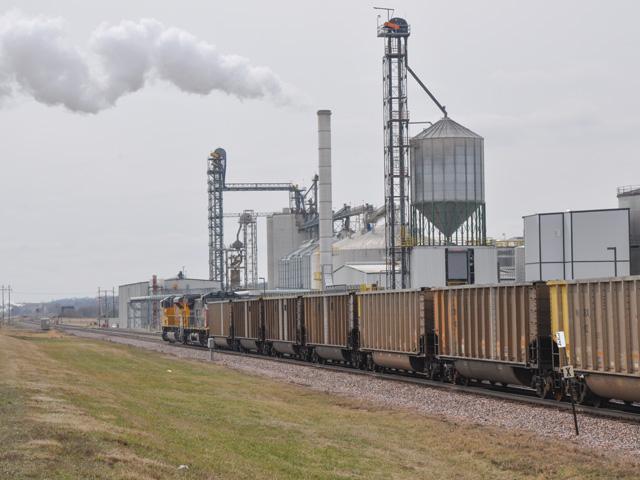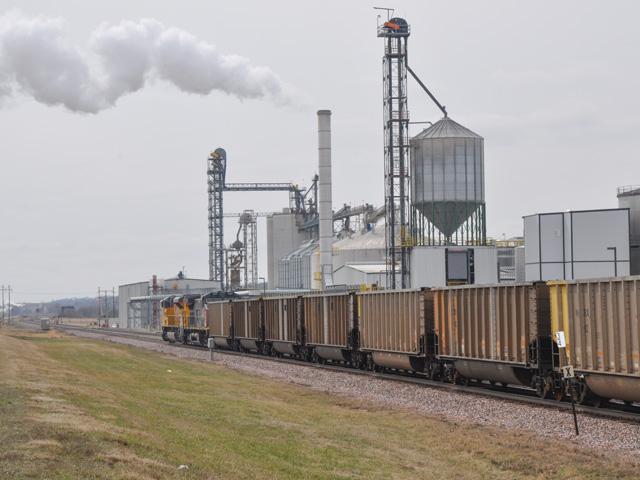Ethanol Blog
California Proposes Changes to Low-Carbon Fuel Standard, E15 Approved in Montana
LINCOLN, Neb. (DTN) -- The California Air Resources Board will be launching a public comment period on a number of proposed changes to the state's low-carbon fuel standard.
The public comment period is set to begin on Thursday, as the state is looking to make updates designed to increase cuts to total greenhouse gas emissions in the transportation sector.
"The proposed amendments are expected to reduce lifecycle GHG emissions of transportation fuels consumed in California by about 558 million metric tons in carbon dioxide equivalent cumulatively from 2024 to 2046 as compared to business as usual," the state said in a proposal announced about one week before Christmas.
The proposal includes a requirement of biofuels "pathway holders" to track crop-based and forestry-based feedstocks to "their point of origin and require independent feedstock certification to ensure feedstocks are not contributing to impacts on other carbon stocks like forests."
Though the U.S. ethanol industry has been fighting CARB for many years on the idea of penalizing corn-based ethanol for indirect land use change in the state's LCFS, California regulators continue to insist it is a problem.
Indirect land use change is a theory that expanded biofuels production in the U.S., for example, is causing landowners in other countries to use more land to produce biofuels feedstocks in response to biofuels demand.
As the sustainable aviation fuel industry continues to build in the U.S. and beyond, CARB proposes eliminating an LCFS exemption for intrastate fossil jet fuel starting in 2028.
P[L1] D[0x0] M[300x250] OOP[F] ADUNIT[] T[]
"Alternative jet fuel production has increased since it became an eligible LCFS opt-in fuel in 2019, and with 11.6 million gallons produced in 2022," CARB said in the proposal.
"This provision would be limited to flights that take off and land within the State of California. Momentum is growing for AJF, an alternative liquid fuel that can displace fossil jet fuel without engine modifications, along with interest in zero-emission technologies for aviation. At the federal level, a tax credit of up to $1.25 per gallon is available to sustainable aviation fuel producers. The 2022 scoping plan update anticipates a major shift away from fossil jet fuel by 2045, including 20% zero-emission aviation."
When it comes to renewable diesel, CARB said it is proposing changes to the LCFS to account for growth in the industry.
"Renewable diesel capacity has grown substantially and far exceeds what was previously modeled in 2018 when the current CI (carbon intensity) benchmarks were established," CARB said.
"Electricity and hydrogen used as vehicle fuels have increased over 50% between 2019 and 2022 and are far outpacing the projections staff used to establish the existing CI benchmarks during the previous 2018 rulemaking. There is also much progress in the liquid and gaseous alternative fuel spaces. Biofuel production capacity has increased substantially in recent years, with many announcements nationwide and in California for new or expanded capacity. Momentum for alternative fuels is growing at the national level, as well."
CARB proposes "strengthening" the pre- and post-2030 carbon intensity benchmarks to accelerate GHG reductions in transportation fuel.
Read all the details here: https://ww2.arb.ca.gov/…
E15 APPROVED IN MONTANA
Montana became the 49th state to approve the sale of E15 this week.
The state's building and commercial measurements bureau in the Montana Department of Labor and Industry's Business Standards Division updated the state regulations to reflect the latest handbook governing fuel quality -- the most recent version of National Institute of Standards and Technology handbook 130.
Previously, the state's regulations were based on a 2012 edition of the handbook that limited ethanol content to 10 percent.
The new rule was finalized, effective Jan. 1, in the December 2023 edition of the Montana administrative register.
"This is great news for Montana drivers who will soon have access to a lower-cost fuel option at the pump," Growth Energy CEO Emily Skor said in a news release.
Todd Neeley can be reached at todd.neeley@dtn.com
Follow him on X, formerly known as Twitter, @DTNeeley
(c) Copyright 2024 DTN, LLC. All rights reserved.






Comments
To comment, please Log In or Join our Community .